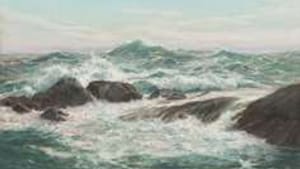Articles
6207 results
Page 413
"Bonnie & Clyde' on Broadway
Haves vs. have-nots
Unlike the original film version, the new musical Bonnie & Clyde refuses to glamorize its bank-robbing lovers. Instead it focuses on the gritty realities of the Great depression, with hummable music that evokes the 1930s.
Articles
3 minute read

Suburbanites and the Orchestra
On saving the Orchestra: The view from the suburbs
BSR readers have heard from a music professor and a 20-something about how to save the Philadelphia Orchestra. Let me speak for another underserved and potentially huge Orchestra constituency: suburbanites.
Articles
4 minute read

J. C. Chandor's "Margin Call'
Panic on the Street: Hollywood tackles the Crash of '08
J. C. Chandor's Margin Call depicts the financial meltdown of 2008 from inside the executive suites of a company that resembles Lehman Brothers but, unlike its prototype, aims to survive. Chandor's film is that rare serious attempt to put a human face on an economic crisis. But its characters, however vivid, are far less appealing than the Corleones of The Godfather, and also far more dangerous.
Articles
7 minute read

Kevin Muente and Phyllis Purves-Smith landscapes at Gross McCleaf
Who needs people?
Phyllis Purves-Smith is one artist who doesn't need faces; she can wring emotion from the very stones themselves. Kevin Muente adds a haunting dimension to his D-Day landscapes.
Articles
3 minute read

Compagnie Marie Chouinard at Annenberg
Chopin and Stravinsky confront an alien universe
Marie Chouinard's expressive aggressiveness may be a dated dance genre, but her sheer power propelled her audience into either a future or a past that reminded us that perhaps our present isn't all that bad.
Articles
3 minute read
Sign up for our newsletter
All of the week's new articles, all in one place. Sign up for the free weekly BSR newsletters, and don't miss a conversation.

Lars von Trier's "Melancholia' (1st review)
Imagining the unimaginable
Unlike most films about the end of the world, Lars von Trier's haunting and disturbing Melancholia provides a much more oppressively vivid sense of what the apocalypse might actually feel like.
Articles
4 minute read

Fo's "Accidental Death of an Anarchist' at the Curio
The anarchist's alternative
Dario Fo's efforts have always irritated the authorities and delighted the public with his farcical attacks on government corruption and social injustice. His work shares much in common with David Mamet's. So why is Mamet a darling of American theater, while Fo hasn't been performed in Philadelphia since 1997? Here's my theory.
Articles
5 minute read

Yannick conducts Higdon and Yuja Wang
Yannick the peripatetic
Energy was the operative word at this weekend's Philadelphia Orchestra concerts, in more ways than one: The wunderkind Yannick Nézet-Séguin was conducting in two cities almost simultaneously.
Articles
3 minute read

Alexander Payne's "The Descendants'
Dynasty, Hawaiian Style
Alexander Payne is the best satirist of the current American film generation, and The Descendants is his most ambitious film yet. But his mordant wit too often exposes a vein of sentiment. He needs to decide where his art wants to go.
The Descendants. A film directed by Alexander Payne. For Philadelphia area show times, click here.
Articles
6 minute read

Louvre treasures at the Morgan Library
The left hand of genius
“David, Delacroix, and Revolutionary France” is a feast of drawings from the Louvre, loosely tied to the politically volcanic period between 1789 and 1848. The historical references are mostly oblique if present at all, but the art needs no excuse.
Articles
4 minute read